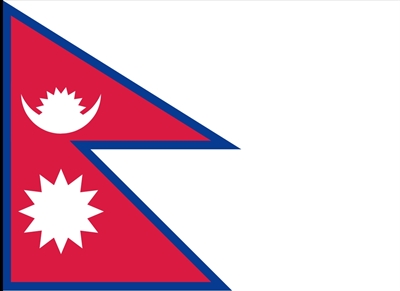Nepal - Human Rights Committee (LOIPR) - Gender Equality, Education, Child Marriage, Human Trafficking, and Child Labor - January 2021
Country: Nepal
Type: Intl Mechanism Submission
Issues: Children's Rights, Education, Gender-Based Violence, Human Trafficking, International Advocacy, Women's Rights, Workers' Rights
Mechanism: UN Human Rights Committee
Report Type: List of Issues Prior to Reporting
The Advocates for Human Rights submitted a List of Issues Prior to Reporting on gender equality in access to education, child marriage, human trafficking, and child labor in Nepal for the 131st session of the Human Rights Committee.
Nepal’s practices regarding gender equity in education, human trafficking, and child labor violate the International Covenant on Civil and Political Rights. While Nepal has made some progress in the realm of gender equity, patriarchal attitudes and deep-rooted stereotypes perpetuate discrimination against women in all spheres of life. Harmful practices such as child marriage, the dowry system, son preference, witchcraft accusations, and chaupadi discriminate against women and girls.
The 2015 Constitution of Nepal and the Education Act Eight Amendment Bill (June 2016) guarantee basic compulsory education through Grade 8, yet as many as two-thirds of adolescent girls in rural areas do not attend school. Although Nepal has enacted legislation to combat child labor, serious problems in implementation remain: 26% of all 5 to 17-year-olds are working in child labor. Trafficking and sexual exploitation of Nepali children remains a significant problem; every year, an estimated 12,000 children are trafficked to India to work in brothels or exploited for their labor.
The authors of the report suggest several questions to pose to the government of Nepal:
- What steps is the State Party taking to ensure that education is compulsory and free throughout Nepal for all children without discrimination from pre-K through Grade 12?
- What measures has the State Party taken to ensure its effective implementation in practice of domestic laws prohibiting all forms of harmful traditional practices, including child marriage?
- When does the State Party plan to revise the Human Trafficking and Transportation Control Act to bring the definition of human trafficking in line with international law?
- When will the State Party raise the minimum wage of work into full compliance to ensure that all children under 18 receive full protection under the Convention on the Rights of the Child and its Optional Protocols?
- What measures will the State Party take to strengthen the implementation and enforcement of existing legislation and regulations on child labor, including expanding the number of labor-inspector positions and filling all vacant positions with persons with strong qualifications in the area of child labor?




